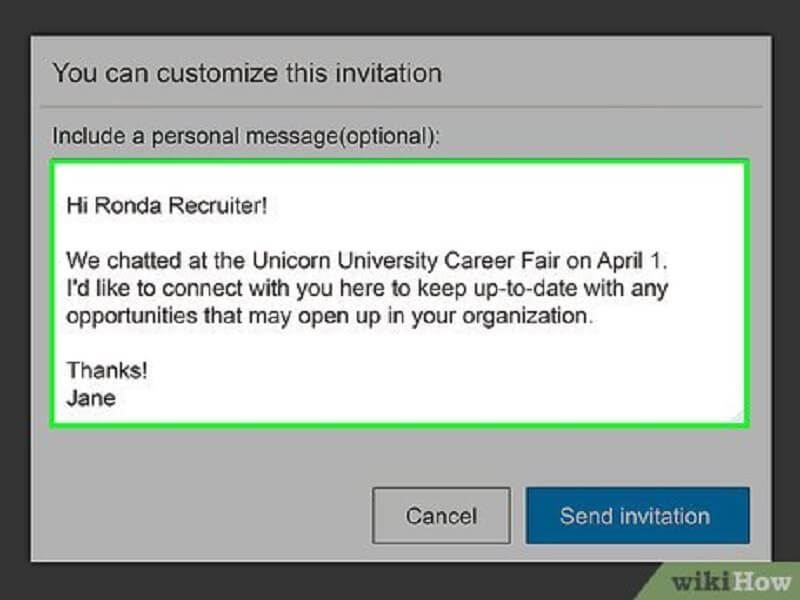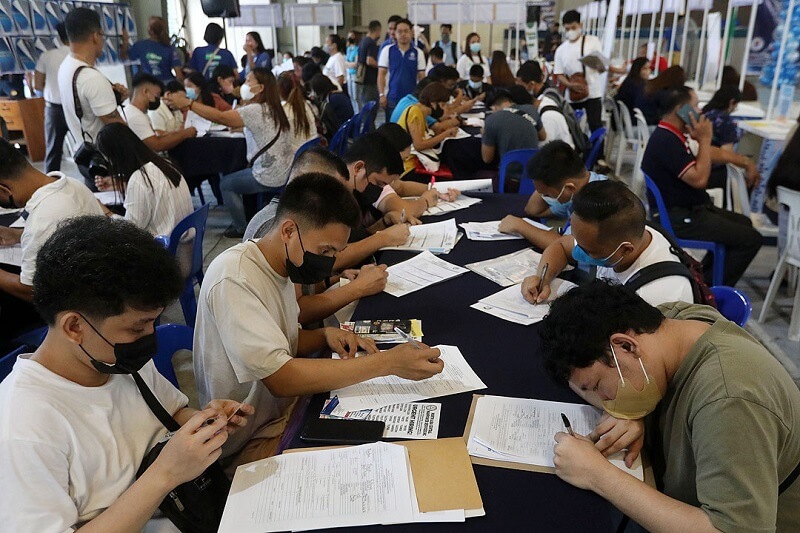Maximize Your Success at a Job Fair with These Proven Tips
Attending a job fair can be a game-changer for your career. Whether you’re a fresh graduate or an experienced professional, job fairs provide an excellent platform to connect with potential employers, learn about various industries, and even secure job offers. In this guide, we’ll share essential tips to help you navigate through a job fair successfully, ensuring you’re well-prepared and confident.
1. Understand the Benefits of Attending a Job Fair
Job fairs offer a unique opportunity to interact directly with multiple employers in a short period of time. Unlike applying for jobs online, attending a job fair allows you to make a personal connection with recruiters, which can increase your chances of being noticed. Additionally, job fairs give you access to a wealth of information about different industries, helping you broaden your career horizons. Whether you’re seeking a full-time job or just exploring career paths, understanding the benefits of attending a job fair will motivate you to prepare thoroughly.

- Make Personal Connections
The most significant advantage of attending a job fair is the chance to meet recruiters face-to-face. These personal connections can help you stand out from other candidates and may even lead to interview opportunities on the spot.
- Learn About Various Industries
Job fairs often attract companies from multiple sectors, giving you the chance to explore different industries and career paths. This is especially beneficial if you’re unsure about the specific field you want to pursue.
2. How to Prepare for a Job Fair
Preparation is key to maximizing your success at a job fair. Here are several ways to ensure you’re fully prepared:

Research the companies attending: Before the event, look up the list of employers who will be present. Learn about their mission, culture, and open positions so you can tailor your interactions.
• Update your resume: Make sure your resume is up to date and highlights relevant experience. Bring multiple copies to hand out to employers.
• Prepare your elevator pitch: You should be able to introduce yourself, your skills, and your career goals in a concise and confident manner. This will help you make a strong first impression.
- Dress Appropriately for the Job Fair
Your appearance at a job fair plays a crucial role in making a positive first impression. Dress in professional attire that aligns with the industry you are targeting. If you’re unsure of the dress code, it’s always better to lean toward a more formal look. Choose job fair outfits that make you feel confident and ready to engage with employers.
- Prepare for Common Job Fair Questions
Recruiters at a job fair may ask you a few questions to gauge your interest and suitability for their organization. Prepare for basic job fair questions, such as “What do you know about our company?” or “Why are you interested in this role?” Practicing your answers will help you feel more confident and articulate during these interactions.

3. Virtual Job Fairs: A Growing Trend
In recent years, virtual job fairs have become increasingly popular, providing an alternative to traditional in-person events. These online fairs offer the same opportunities to connect with employers but allow you to do so from the comfort of your home. To make the most of a virtual job fair, you should still prepare thoroughly, just as you would for an in-person event.
3.1. Benefits of Virtual Job Fairs
Virtual job fairs offer several advantages, including the flexibility to attend from anywhere and the ability to interact with employers without the need for travel. Additionally, virtual platforms often provide tools for you to schedule interviews, submit resumes digitally, and chat with multiple recruiters in real-time. By participating in a virtual job fair, you can expand your job search without geographical limitations.
3.2. How to Prepare for a Virtual Job Fair
Just like a traditional job fair, preparation is key to succeeding at a virtual event. Here are some tips:
• Test your technology: Ensure your internet connection, microphone, and camera are working correctly before the event starts.
• Choose a quiet space: Find a well-lit, quiet area where you can focus and engage with recruiters without distractions.
• Dress professionally: Even though you’re attending from home, dressing in professional attire will help you feel more prepared and confident.
4. What to Bring to a Job Fair
When attending a job fair, it’s essential to come prepared with the right materials. Here’s a checklist of what you should bring:
• Copies of your resume: Make sure to bring multiple copies of your updated resume to hand out to employers.
• A professional portfolio: If applicable, bring a portfolio that showcases your work, especially if you are in a creative or technical field.
• Notepad and pen: Take notes during your conversations with recruiters. This will help you remember important details when you follow up after the event.

5. How to Follow Up After a Job Fair
Following up after a job fair is a crucial step that many candidates overlook. Sending a thank-you email to the recruiters you spoke with can leave a lasting impression and demonstrate your enthusiasm for the position. A thoughtful follow-up can distinguish you from other candidates and increase your chances of moving forward in the hiring process.
- Key Elements of a Good Follow-Up Email
When crafting your follow-up email, keep it concise and professional. Here’s what to include:
-Thank the recruiter: Express appreciation for their time and the opportunity to speak with them.
- Recap your conversation: Mention something specific from your discussion to jog their memory.
- Restate your interest: Reiterate your enthusiasm for the role and how your skills align with the company’s needs.
By taking the time to send a follow-up message, you show initiative and reinforce your qualifications.
6. Job Fair Registration: What You Need to Know
Before attending a job fair, it’s important to complete the job fair registration process. Many fairs require attendees to register in advance, either online or in person, to secure their spot. The registration process typically involves providing basic information about yourself and your career goals.

6.1.Why Pre-Registration is Important
Pre-registering for a job fair not only guarantees your participation but also allows you to receive important updates and materials from the event organizers. In some cases, early registration may give you access to exclusive opportunities, such as one-on-one interviews with recruiters or workshops on resume building and interview skills.
6.2. How to Register for a Job Fair
To register for a job fair, visit the event’s website and fill out the required forms. Be sure to provide accurate information, as this will help recruiters prepare for your arrival. If there’s an option to upload your resume during registration, take advantage of it to give recruiters a preview of your qualifications.
7. Upcoming Job Fairs Near Me: How to Find Them
If you’re actively seeking employment, knowing where to find upcoming job fairs near me is essential. Job fairs are often held by local career centers, universities, or professional organizations. Keeping track of these events can provide you with continuous opportunities to network and connect with potential employers.
7.1. How to Stay Informed About Upcoming Job Fairs
To ensure you don’t miss any opportunities, sign up for newsletters from local job boards, career services, or employment agencies. You can also follow the social media pages of organizations that frequently host job fairs. Websites like Eventbrite and LinkedIn also list upcoming job fairs in your area.
7.2. Use Job Search Engines
Another way to find job fairs is by using job search engines that specifically list career events. Some popular job search engines include Indeed, Glassdoor, and CareerBuilder. These platforms often provide filters to help you search for job fairs based on your location and industry of interest.
8. Job Fair Tips for Success
To truly stand out at a job fair, you need to do more than just show up. By following some key job fair tips, you can make the most of your time and leave a strong impression on potential employers.

- Plan Your Day
Before attending the job fair, create a plan. Look at the list of employers and prioritize which ones you want to meet. Arriving with a strategy helps you use your time efficiently and ensures you don’t miss any important connections.
- Be Confident and Professional
Approach recruiters with confidence. Introduce yourself with a firm handshake and a friendly smile. Remember, first impressions matter. Being professional in your demeanor and communication can set you apart from other candidates.
- Ask Thoughtful Questions
During your conversations with recruiters, don’t be afraid to ask thoughtful questions about the company and the roles they’re hiring for. This shows that you’re genuinely interested and engaged. Examples include, “What skills are you looking for in this role?” or “Can you describe the company’s work culture?”
9. What to Expect During a Job Fair
Knowing what to expect during a job fair can help ease any anxiety and ensure you’re well-prepared. A typical job fair features a variety of employers with booths or tables, where you can approach and introduce yourself. There may also be presentations, panel discussions, or workshops designed to provide career advice.
- Interaction with Employers
You’ll have the opportunity to engage with recruiters and representatives from various companies. Be prepared to provide a brief summary of your qualifications and career goals. The recruiters will likely ask you questions to gauge your fit for their open positions.
- Collecting Information
Job fairs are a great way to gather information about different industries, companies, and job roles. Even if you don’t land an interview right away, collecting brochures, business cards, and taking notes will help you make informed decisions about your next steps.
10. Conclusion: Making the Most of Your Job Fair Experience
Attending a job fair can be a valuable experience in your job search. Whether in-person or virtual, job fairs offer a unique opportunity to connect with employers, explore career options, and even secure interviews. To maximize your chances of success, it’s crucial to prepare thoroughly, present yourself professionally, and follow up after the event.
By using these job fair tips and strategies, you’ll not only make a strong impression on potential employers but also set yourself up for long-term career success. Don’t forget to follow up with the recruiters you meet and continue to refine your job search approach based on the insights you gain from the event.
- Essential Job Description Supervisor Guide for Success
- Essential Job Description Sales Guide for Success
- Job Description Restaurant Manager – Roles & Skills
- Understanding the job description project coordinator role
- Job Description HR Assistant—Roles and Responsibilities
- Essential Guide to Job Description COO
- Comprehensive Job Description Admin Assistant Insights
- A Comprehensive and In-Depth Job Description for HR Generalist
- Comprehensive Guide: Job Description Executive Chef
- Top 5 Best Job Search Sites for Easy Job Applications
- QA Job Description: Key Skills and Roles in 2025
- The Complete Clerk Job Description Guide
- What Is Your Greatest Weakness? Mastering the Answer
- Master the Phone Interview for Career Success
- Crafting the Perfect CV Personal Statement
- What is a Job Description Warehouse Worker?
- Detailed job description teller bank for career growth
- Comprehensive Job Description Store Manager Guide
- Comprehensive Guide to Job Description Personal Assistant
- Comprehensive Guide to Job Description Nursing Assistant
- Comprehensive Job Description Graphic Designer Guide
- Comprehensive Job Description Chief of Staff Guide
- Comprehensive Job Description Cleaner Guide
- Comprehensive Job Description Assistant Manager
- Comprehensive Guide to Job Description Account Executive
- Comprehensive Guide to Secretary Job Description
- Comprehensive Job Description of Teaching Assistant
- Comprehensive Job Description for a Social Media Manager
- Mastering STAR Interview Techniques: The Ultimate Guide
- “I Hate My Job” – What You Should Do Next
- What Is a Job Description Team Leader?
- A Complete Guide to Job Description Sales Assistant
- Comprehensive Job Description for Security Guards
- Detailed Job Description for HR Manager
- The Ultimate Guide to Job Description Medical Assistant
- Job Description Housekeeping: Key Roles & Responsibilities
- Job Description Merchandiser: Key Roles & Skills
- Job Description Product Manager: Roles and Responsibilities
- Job Description Account Manager: Roles and Responsibilities
- Job Description Marketing Manager: Roles & Skills
- Job Description HR: The Essential Guide for HR Professionals
- Best Jobs for Introverts: Top Careers for Quiet Thinkers
- What is Your Greatest Strength? How to Answer Effectively
- Job Description Data Entry Guide
- Detailed Job Description Sales Manager Guide
- The Importance of Work Experience on a Resume
- Comprehensive Job Description Sales Representative Insights
- Comprehensive Job Description of Project Manager
- Job Description Executive Assistant: Key Responsibilities
- Job Description for Sales Executive: Key Roles and Skills
- Job Description Customer Service Roles
- Job Description Business Analyst: Roles and Skills
- Comprehensive Job Description for a Receptionist
- Mastering the Sales Associate Job Description
- Understanding Accountant Job Description in Detail
- Hard Skills vs Soft Skills: Key Differences and Examples
- Why Do You Want to Work Here? Best Answer and Examples
- How to Decline a Job Offer Politely and Gracefully
- Comprehensive Job Description of Waitress
- Job Description Cashier: Key Responsibilities and Skills
- Where Do You See Yourself in 5 Years?
- Mastering Problem Solving Skills for Career Success
- Effective Job Description Sample Guide
- Behavioral Interview Questions Guide
- Comprehensive Job Description for an Administrative Assistant
- Essential Job Titles for Career Success
- Master Leadership Skills for Effective Management
- How to Write a Perfect Motivational Letter
- CV vs Resume: Understanding the Key Differences
- Top Reasons for Leaving a Job Today
- What Is a Resignation Letter? Key Details You Must Know
- How to Write a Perfect Job Application
